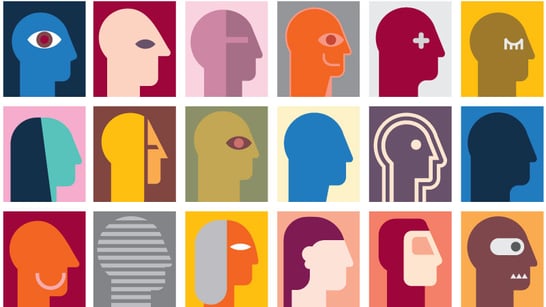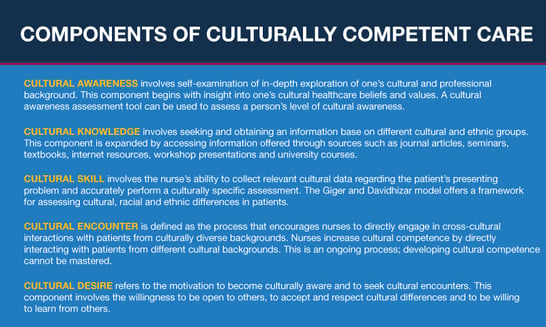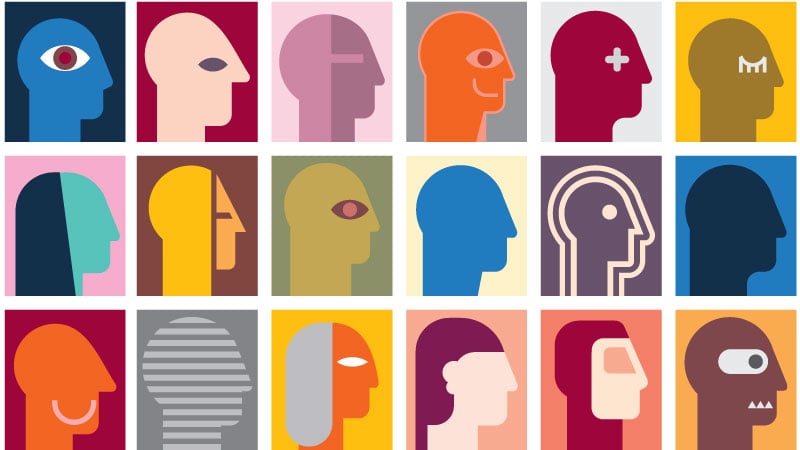 Cultural respect is vital to reduce health disparities and improve access to high-quality healthcare that is responsive to patients’ needs, according to the National Institutes of Health (NIH). Nurses must respond to changing patient demographics to provide culturally sensitive care. This need is strikingly evident in critical care units.
Cultural respect is vital to reduce health disparities and improve access to high-quality healthcare that is responsive to patients’ needs, according to the National Institutes of Health (NIH). Nurses must respond to changing patient demographics to provide culturally sensitive care. This need is strikingly evident in critical care units.
“As an emergency room nurse in a small rural hospital, I was present when an elderly Native American man was brought to the emergency room by his wife, sons, and daughters,” Deborah Flowers says in Critical Care Nurse. “He had a history of 2 previous myocardial infarctions, and his current clinical findings suggested he was having another. During the patient’s assessment, he calmly informed the emergency room staff and physician that, other than coming to the hospital, he was following the ‘old ways’ of dying. He had ‘made peace with God and was ready to die’ and ‘wanted his family with him.’”
“The emergency room physician ordered intravenous fluids, a dopamine infusion, a Foley catheter, and transfer to the intensive care unit of a regional hospital 3 hours away. The patient died 2 weeks and 2 code blues later, and was intubated and receiving mechanical ventilation for most of that time. No family members were present when he died except for his wife. The rest of his family members were unable to afford the cost of traveling to a healthcare facility that far from home. This man’s cultural values and preferences in relation to dying were disregarded.”
In contrast, promoting culturally competent nursing care helps nurses function effectively with other professionals and understand the needs of groups accessing health information and healthcare.
Examining Culturally Competent Nursing Care
Definitions
Cultural competence can be defined as “developing an awareness of one’s own existence, sensations, thoughts, and environment without letting it have an undue influence on those from other backgrounds; demonstrating knowledge and understanding of the client’s culture; accepting and respecting cultural differences; adapting care to be congruent with the client’s culture,” according to Larry Purnell in his book Transcultural Health Care: A Culturally Competent Approach (1998).
Another definition states that cultural competence “describes how to best meet the needs of an increasingly diverse patient population and how to effectively advocate for them,” says Barbara L. Nichols, former CEO of the Commission on Graduates of Foreign Nursing Schools, in NSNA Imprint.
Explanations of culturally competent nursing care focus on recognizing a patient’s individual needs, including language, customs, beliefs and perspectives. Cultural sensitivity is foundational to all nurses. “The nurse practices with compassion and respect for the inherent dignity, worth, and unique attributes of every person,” states the American Nurses Association’s Code of Ethics for Nurses.

Relevance
More than one-third (37 percent) of the U.S. population consists of individuals from ethnic and racial minority groups, and by 2043, minority groups will become the majority, according to research from the American Association of Colleges of Nursing. However, nurses from minority backgrounds represent 19 percent of the registered nursing (RN) workforce. Men account for 9.6 percent of the RN workforce.
There is a “challenge presented by the health care needs of a growing number of diverse racial and ethnic communities and linguistic groups, each with its own cultural traits and health challenges,” the NIH says. Nurses and other healthcare providers must account for these differences through cultural respect to support positive health outcomes and provide accuracy in medical research.
“The development of cultural competence in the nursing practice first requires us to have an awareness of the fact that many belief systems exist,” says Lanette Anderson, executive director of the West Virginia State Board of Examiners for Licensed Practical Nurses. “The beliefs that others have about medical care in this country, and sometimes their aversion to it, may be difficult for us to understand. We must remember that we don’t need to understand these beliefs completely, but we do need to respect them.”
Developing Cultural Competence
Framework for Delivering Culturally Competent Services
Campinha-Bacote and Munoz (2001) proposed a five-component model for developing cultural competence in The Case Manager.
- Cultural awareness involves self-examination of in-depth exploration of one’s cultural and professional background. This component begins with insight into one’s cultural healthcare beliefs and values. A cultural awareness assessment tool can be used to assess a person’s level of cultural awareness.
- Cultural knowledge involves seeking and obtaining an information base on different cultural and ethnic groups. This component is expanded by accessing information offered through sources such as journal articles, seminars, textbooks, internet resources, workshop presentations and university courses.
- Cultural skill involves the nurse’s ability to collect relevant cultural data regarding the patient’s presenting problem and accurately perform a culturally specific assessment. The Giger and Davidhizar model offers a framework for assessing cultural, racial and ethnic differences in patients.
- Cultural encounter is defined as the process that encourages nurses to directly engage in cross-cultural interactions with patients from culturally diverse backgrounds. Nurses increase cultural competence by directly interacting with patients from different cultural backgrounds. This is an ongoing process; developing cultural competence cannot be mastered.
- Cultural desire refers to the motivation to become culturally aware and to seek cultural encounters. This component involves the willingness to be open to others, to accept and respect cultural differences and to be willing to learn from others.
Tips
Nurses should explain healthcare jargon to patients whose native language is not English, according to Monster contributing writer Megan Malugani. A breast cancer awareness program for U.S. immigrants demonstrated that women were too shy to say they didn’t understood certain terms. Some assumed that Medicare and Medicaid were forms of cancer.
Many people from other cultures seek herbal remedies from traditional healers — and they can be harmful or interact poorly with Western medicine. Nurses should ask patients about any alternative approaches to healing they are using. Another example of cultural sensitivity involves nurses understanding the roles of men and women in the patient’s society. “In some cultures, the oldest male is the decision-maker for the rest of the family, even with regards to treatment decisions,” Anderson says.
The most important way for nurses to achieve cultural competency and promote respect, according to Anderson, is to gain the patient’s trust for a stronger nurse-patient relationship. This requires sensitivity and effective verbal and non-verbal communication.
Pitfalls
Nurses should never make assumptions or judgments about other individuals or their beliefs. Instead, nurses can ask questions about cultural practices in a professional and thoughtful manner.
Common pitfalls to avoid involve stereotyping and labeling patients, according to Flowers.
- Nurses should avoid unintentionally stereotyping a patient into a specific cultural or ethnic group based on characteristics like outward appearance, race, country of origin or stated religious preference. Stereotyping refers to an “oversimplified conception, opinion, or belief about some aspect of an individual or group of people,” she says. Additionally, many subcultures and variations can exist within a cultural or ethnic group. For instance, the term Asian-American includes cultures such as Chinese, Japanese, Taiwanese, Filipino, Korean and Vietnamese, and within these cultures, there are variations in geographic region, religion, language, family structure and more.
- Nurses should be careful about labeling patients. For instance, citizens in the United States may refer to themselves as Americans, but that term can also apply to individuals from Central and South America. Flowers recommends referring to a person from the United States as a U.S. citizen.
Responding to Higher Standards in Nursing
More hospitals across the United States now require that nurses have a bachelor’s degree. Rising educational standards are emphasized to increase the quality of care that patients receive. Alvernia University’s online RN to BSN Completion Program is designed to improve patient outcomes and help nurses meet each patient’s needs, including those unique to the patient’s cultural background. The degree program takes place in a convenient online learning environment that accommodates students’ work and personal schedules.
The RN to BSN Completion Program includes a class — NUR 318 Developing Cultural Competency & Global Awareness — which offers students “an opportunity to begin their lifelong journey to becoming culturally engaged.” This course has existed at Alvernia University for more than a decade, and demonstrates how Alvernia is leading the way in preparing culturally competent nurses.






